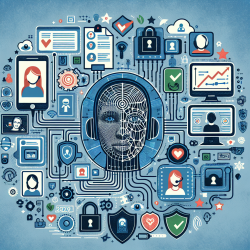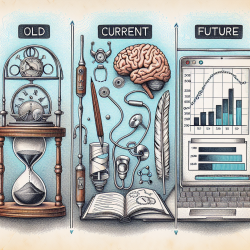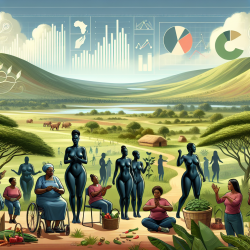In a world increasingly driven by digital identities and biometric systems, understanding the privacy implications of such technologies is critical, especially for those of us working with vulnerable populations like children. The research paper titled "A Failure to 'Do No Harm' -- India’s Aadhaar biometric ID program and its inability to protect privacy in relation to measures in Europe and the U.S." provides invaluable insights into the risks and challenges associated with biometric ID systems. This blog will explore how the findings from this research can help improve online therapy practices, particularly in ensuring data privacy and protection for children.
Key Takeaways from the Research
The research highlights several critical points about the Aadhaar biometric ID program in India:
- Inadequate Privacy Protections: The Aadhaar program lacks comprehensive data protection and privacy laws, exposing users to potential misuse of their biometric data.
- Mission Creep: Initially designed for limited purposes, the Aadhaar system has expanded to various sectors, making it almost mandatory for daily activities without adequate consent mechanisms.
- Security Breaches: The centralized nature of the Aadhaar database makes it vulnerable to security breaches, risking the exposure of sensitive personal information.
Applying These Insights to Online Therapy Practices
For practitioners in online therapy services, particularly those serving children, the findings from the Aadhaar program offer valuable lessons:
- Implement Robust Data Protection Measures: Ensure that all digital platforms used for therapy sessions are equipped with strong data protection measures. This includes encryption, secure login protocols, and regular security audits.
- Limit Data Collection: Collect only the data that is absolutely necessary for providing therapy services. Avoid storing sensitive information unless it is essential and ensure that any stored data is adequately protected.
- Obtain Informed Consent: Always obtain informed consent from parents or guardians before collecting any biometric or sensitive data from children. Make sure they understand what data is being collected, why it is necessary, and how it will be used.
- Regularly Review and Update Privacy Policies: Keep privacy policies up-to-date and ensure they comply with the latest data protection regulations. Regularly review these policies to address any new risks or vulnerabilities.
Encouraging Further Research
The research on Aadhaar underscores the importance of continuous evaluation and improvement of data protection practices. Practitioners should stay informed about the latest research and advancements in data privacy and biometric technologies. Engaging in further research can help identify new risks and develop innovative solutions to protect the privacy and security of children in online therapy settings.
Conclusion
By implementing robust data protection measures, limiting data collection, obtaining informed consent, and regularly updating privacy policies, online therapy practitioners can significantly improve the privacy and security of their services. The insights from the Aadhaar program serve as a crucial reminder of the importance of safeguarding sensitive information, particularly when working with vulnerable populations like children.To read the original research paper, please follow this link:
A Failure to “Do No Harm” -- India’s Aadhaar biometric ID program and its inability to protect privacy in relation to measures in Europe and the U.S. 









